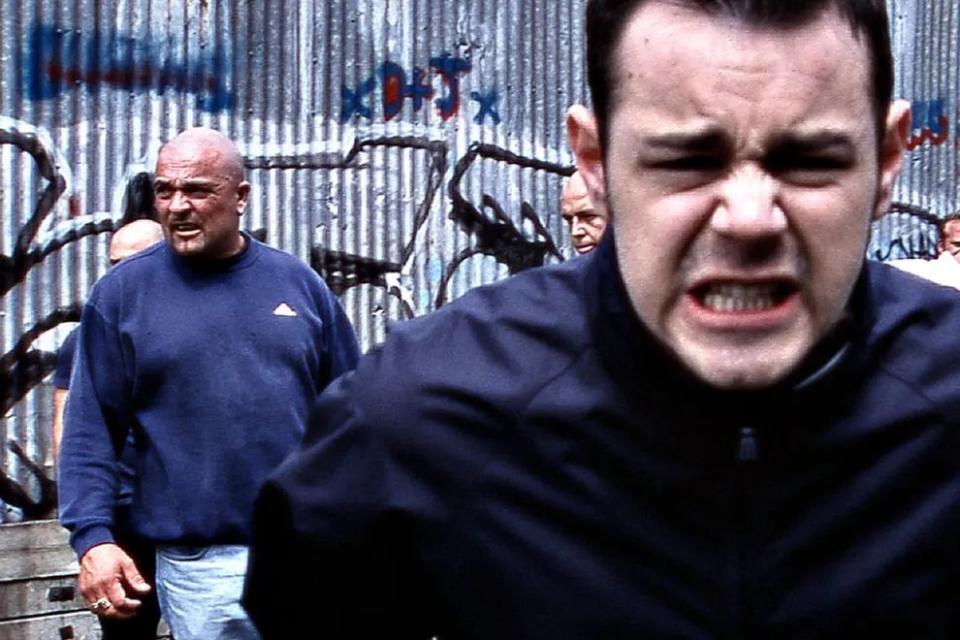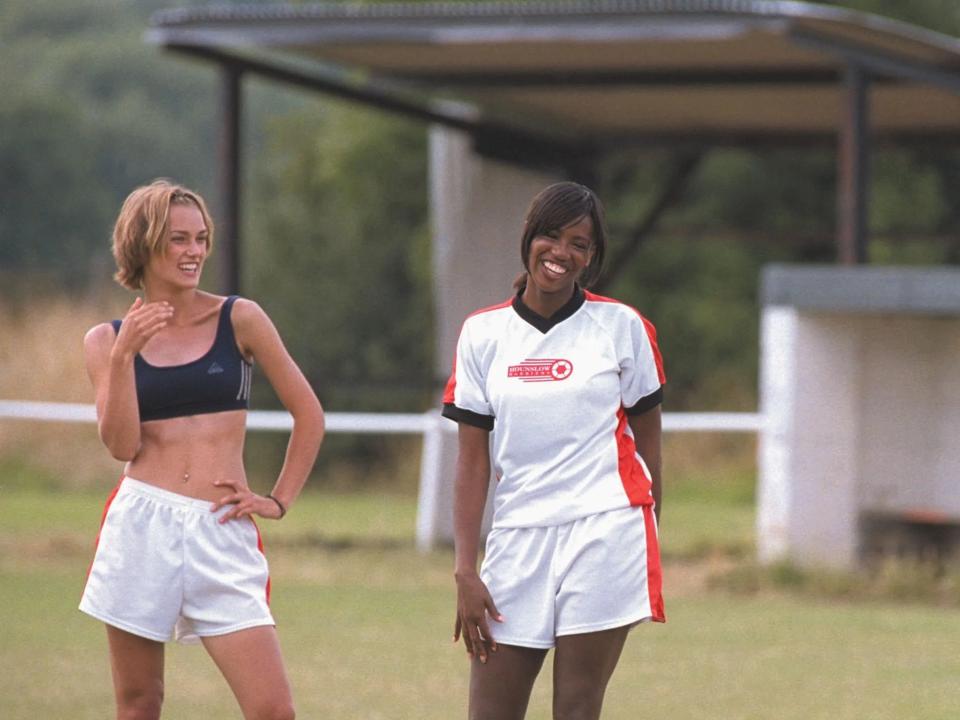Zygi Kamasa Talks First Movie For True Brit Entertainment, The Challenged UK Distribution Landscape & Ways To Boost British Film
- Oops!Something went wrong.Please try again later.
- Oops!Something went wrong.Please try again later.
- Oops!Something went wrong.Please try again later.
- Oops!Something went wrong.Please try again later.
- Oops!Something went wrong.Please try again later.
- Oops!Something went wrong.Please try again later.
- Oops!Something went wrong.Please try again later.

EXCLUSIVE: Former Lionsgate UK & Europe chief and Marv Studios Group CEO Zygi Kamasa launched film and TV company True Brit Entertainment last month with backing from talent management and entertainment company Three Six Zero, which reps talent including Calvin Harris, Frank Ocean, FKA Twigs, Will Smith, Marcus Rashford and Kid Cudi. The company will focus exclusively on British feature films and TV.
Here, Kamasa gives his first interview, talking to us about their debut production Marching Powder, which is set to star Danny Dyer, how True Brit fits into a challenged UK indie distribution landscape and ways to stimulate British filmmaking. For more on Marching Powder click here.
More from Deadline
True Brit has set a target to invest and release between four to eight British films annually and Kamasa’s ambition is to co-finance more than $50M worth of productions each year. Matthew Vaughn’s Marv will be a small shareholder in True Brit Entertainment having backed the development of the new business.
While at Lionsgate, Kamasa worked on the releases of more than 40 British titles including Bend It like Beckham, Salmon Fishing in the Yemen, Brooklyn, Eddie The Eagle and The Father. He also shepherded dozens of U.S. blockbusters and Oscar winners such as The Hunger Games and La La Land. At Marv, he exec-produced the Taron Egerton starrer Tetris, that was sold to Apple TV Plus, and Vaughn’s latest big-canvas film Argylle starring Henry Cavill, Sam Rockwell, Bryce Dallas Howard, Samuel L Jackson and Joh Cena.
Here’s our interview with Kamasa.
DEADLINE: From discussing Marching Powder a little, it sounds a little closer to the comedy genre than The Football Factory, which was the 2004 hooligan movie which helped launch the careers of Danny Dyer and Nick Love…
KAMASA: Nick has previously done this movie as a straight drama-thriller but he wanted to progress that. We didn’t want to do a derivative version of The Football Factory. That said, the original was a huge cult success and sold 2.5M DVDs, despite not doing so well theatrically.
Nick wanted to do an irreverent and light take on that work, while also showing how it can be violent and scary. He wanted to make a statement about this genre after ten years away from movie-making.
DEADLINE: Why did this make sense as your first movie out the gate?
KAMASA: Both Nick and Danny have big cult followings in the UK. There aren’t many places in the UK today that will fund a commercial low-budget British film like this. I’ve done many films with Film4 and BBC Films, and they’re fantastic at what they do, and I’ll continue to work with them, but neither would make a film like this. The BFI neither.
Movies like Lock, Stock, Layer Cake, Snatch and Bend It Like Beckham are not being made today. Filmmakers like Nick have been working more in TV over the last decade, making successful series like Bulletproof and A Town Called Malice. This movie is actually the type of thing a number of British directors would be happy doing.
DEADLINE: Are you starting with this movie as a potential safe home ent play or is it going to get a wide theatrical push?
KAMASA: As wide as possible theatrical, 100%. My aim at True Brit is to do five-six British films per year as wide theatrical releases with large P&A and big campaigns. I personally think this film is a more commercial proposition than The Football Factory. It’s a comedy caper with action sequences and even with a romantic comedy element.
DEADLINE: What needs to happen next on the project? Do you have your full cast in place?
KAMASA: We’re just about to cast the other key roles, some of which will be newcomers. That was one of the great calling cards of movies like Lock, Stock and Bend It Like Beckham: they successfully showcased new faces.

DEADLINE: Who is Rock Star Media and how are they involved?
KAMASA: They are the company who make Grand Theft Auto [Rockstar Games, which has a film and TV division which also invested in The Football Factory]. They worked with Nick closely in his early career. They put money into this as we did. We both financed it together with Altitude. Going forward, on the right project, I’ll put in equity and gap.
DEADLINE: What’s the plan for True Brit in terms of its own size and scale?
KAMASA: My plan is to have a full theatrical team with at least 10-15 people: marketing, PR, a distribution team in house etc. I’ll see how I handle home ent down the line. You have to be creative throughout the production process today. At a studio, having 15-16 movies a year makes it very hard to give each one the attention they deserve. That’ll be different at True Brit. Working at Marv with Matthew Vaughn gave me further insight into how movie releases can be improved during the creative process.
DEADLINE: There has been a lot of anxiety in the UK recently about the health of the independent film sector, particularly as it relates to production and distribution. The UK distribution landscape has been thinning out for years now and has recently lost some more stalwarts. Why do you think this is?
KAMASA: The only thing I would compare it to is the period at the end of the 90s when Polygram were successful but closed down, First Independent closed down and then Pathé were changing to a production model. They were all shutting down when I was setting up Red Bus. Those closures spawned Optimum, Studiocanal, Red Bus, and Contender, which became eOne. Those companies all had an amazing run in the 2000s. For every period of retrenchment, I see a period of opportunity.
It has definitely been tough. Each company had their own reasons for retrenching. eOne was doing well but it was a Hasbro decision to close the UK film group. Cameron McCracken is retiring from Pathé. BBC Film and Film4 are essential for British film and they’re the only hope at the moment. A couple of distributors are dabbling: Entertainment and Lionsgate, but there isn’t a clear strategy.
Covid had a huge impact. The streamers over the past five years were nicking a lot of the big movies, but they’ve stopped buying. That has all had a short term impact on producers.
But I do think the films are out there. Buying will return. I wasn’t sure if there would be five really good movies out there for me to finance but after doing the research and seeing what’s out there, there are at least ten really good British movies I could make next year. I didn’t think Marching Powder would be ready so soon but it is and will shoot from January 15 and I anticipate there will be another two-three movies to shoot for us between March and May. I’ll be up to five movies by summer.
DEADLINE: There have been calls for structural change to the UK independent space. Some have proposed a public-facing film tsar or more investment from streamers. Some years ago during an interview you and I were discussing ways to boost UK film and you suggested that cheaper tickets for British films could be one way to stimulate change and growth. Is that something that could still work?
KAMASA: I support anything that incentivizes the public to go and see British films. My previous suggestion came after I had chaired the Independent Film Review at the BFI. At the time, we tried to address something that has resurfaced now about an extra tax credit for British films under £10M. We didn’t include it in our commission at the time because there wasn’t enough support for it. Now it seems there is enough support for it. The UK should definitely do that.
The commercial decision on what prices cinemas choose has to be their decision. But cinemas are doing more flexible ticket pricing today. It makes no sense for the average consumer to pay the same price to see Avatar as Marching Powder. While they are both art and you shouldn’t compare art to the price of production, consumers are still consumers, and they will question the vast difference in budgets. I think if you lowered the ticket price for a good British film by 20% — or whatever the number is — you would sell significantly more, percentage wise. Audiences are price sensitive. That price sensitivity exists in other fields so why is it not applied to cinema. I do think cinemas are getting it, but that said, I would argue that there haven’t been enough great British movies recently to incentivize such a change. I’m hoping I can help change that.

Bend It Like Beckham
Best of Deadline
2023 Premiere Dates For New & Returning Series On Broadcast, Cable & Streaming
2023-24 Awards Season Calendar - Dates For Oscars, Emmys, Grammys, Tonys, Guilds & More
Colman Domingo To Receive Palm Springs Film Festival's Spotlight Award, Actor
Sign up for Deadline's Newsletter. For the latest news, follow us on Facebook, Twitter, and Instagram.

